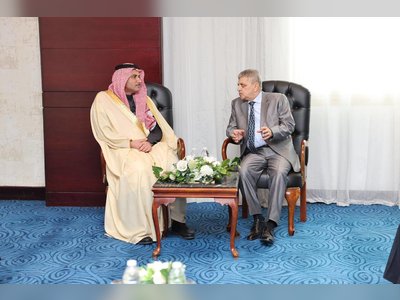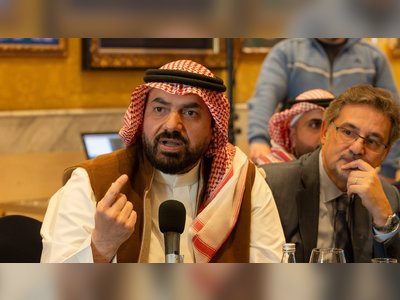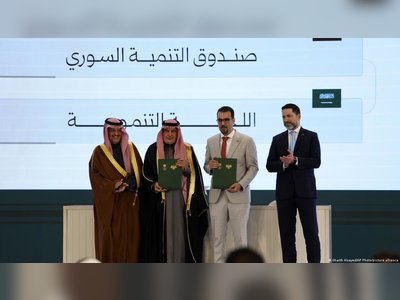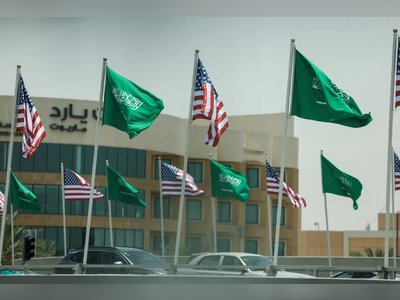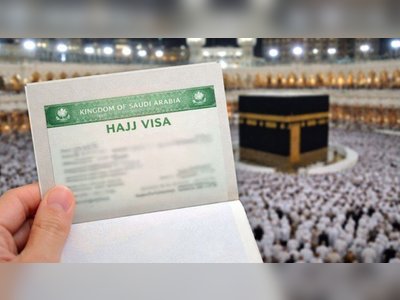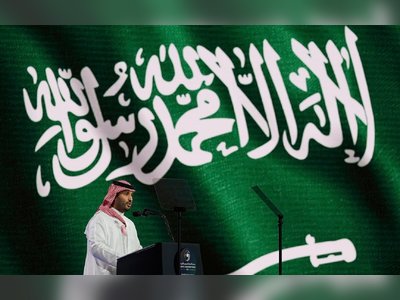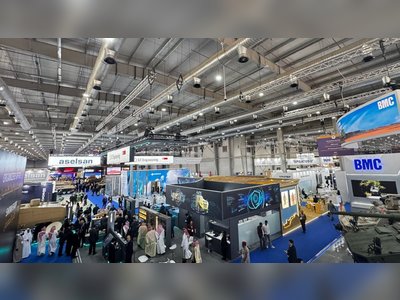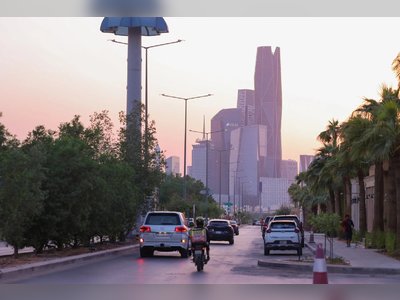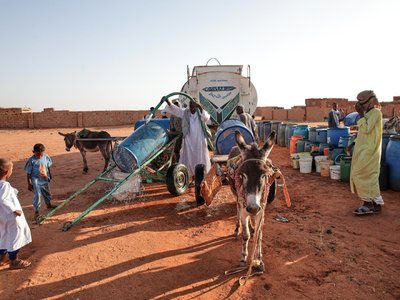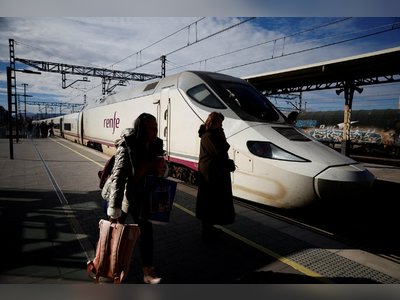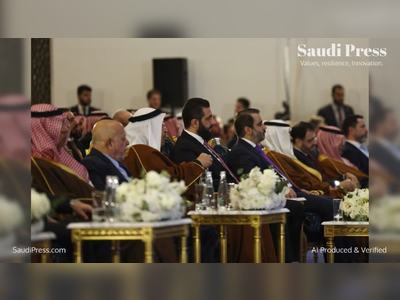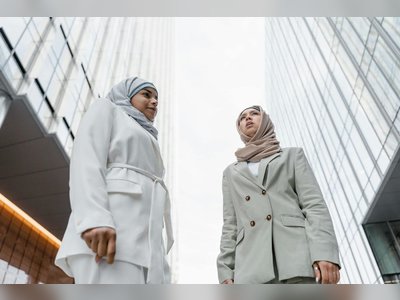
How Egypt is growing forests in middle of the desert
Amid the success of the Serapium Forest, a massive plantation in Egypt, the country is now looking to plant more desert lands with trees as part of plans to fight climate change.
Growing a forest in the middle of the desert has become reality with Egypt eyeing more of these projects to support its economy and fight environmental and climate changes.
Egypt has managed to plant trees in the desert using wastewater, as part of plans to preserve the environment, reduce pollution and optimize the use of natural water resources. The Serapium Forest, which has boomed despite the drought and rainfall deficit, consists of 200 hectares (494 acres) of trees planted in Ismailia city, in northeast Egypt. The forest has been a vital project that set a precedent for other projects to reduce water pollution and unemployment.
The Central Administration of Reforestation affiliated with Egypt’s Ministry of Agriculture launched work on the Serapium Forest back in 1998. A documentary was released in 2014 showing the results of this project.
In light of the success of the Serapium Forest project, African countries followed suit. In 2019, 21 African countries, including Egypt, embarked on a tree-planting project, dubbed the Great Green Wall. Preparations for the project had started back in 2007. Twelve African countries, including Egypt, launched the project from Nigeria, and soon nine other countries joined the initiative. It starts from Senegal, in the far west of the continent, to Djibouti, in its east.
The project, of which only 15% has been completed, stretches over nearly 8,000 kilometers (5,000 miles). It is scheduled to be completed by the end of 2030. The forest will extend over 100 million hectares (247 million acres) at an estimated cost of $8 billion.
Ragaei Saafan, project manager in Serapium, told Al-Monitor that using sewage water to grow a forest in the desert is a golden idea and helps boost the economy. He explained that the treated sewage water will help transform large areas of the Egyptian desert into arable and economically viable areas.
He said that the evergreen forests would purify the air, combat desertification and help reduce the high summer temperature. He added that there is a tree leaf cutter machine in the Serapium Forest, allowing cypress, pine and other deciduous conifers leaves to be used as fertilizers and feed for the livestock. There is also a possibility to raise livestock without any significant cost, except for the potable water, he noted.
Saafan pointed out that in addition to its role in maintaining soil fertility, this forest serves the local economy. He explained that a good management would allow some planted trees, such as the mahogany and camphor, to serve as a permanent source of income in Egypt by exporting the trees or using them in the local wood industry.
Commenting on how the treated sewage water is channeled to Serapium Forest, Saafan explained that the wastewater is channeled in big underground basins high in micro-organisms, and oxygen is pumped to accelerate the water purification process. The water, high in nitrogen and phosphorus, which are good for the forest, is then stored throughout the forest. According to him, the trees have grown four times faster than in any other forest in Europe where the weather is much more favorable. While an average of 60 years is needed for a tree in Europe to become mature, 15 years is more than enough for the trees to mature in this forest.
Commenting on the Ministry of Agriculture’s plan to implement the experience in the other governorates, Sayed Khalifa, head of the Central Administration for Agricultural Extension at the ministry, told Al-Monitor that the ministry already started a plan to promote forests in the various governorates. He noted that 250 feddans (260 acres) of land in Ballanah in Aswan governorate will be planted with trees, including palm trees, after the irrigation network is set up.
He added that 40 feddans (42 acres) of trees are expected to be planted in Armant in Luxor governorate, in addition to 300 feddans (311 acres) in el-Belina in Sohag governorate.
Khalifa said the goal behind growing forests in Egypt is to optimize the use of treated sewage water, produce wood and create new wood-based industries, produce biofuels, protect the country against desertification and erosion, solve the problem of food security, stabilize sand dunes, protect the coasts and boost tourism.
Commenting on the desertification rate in Egypt, Abdo Mahmoud, professor of lands studies at the Faculty of Agriculture in Zagazig University, told Al-Monitor that Egypt loses 3.5 feddans (3.6 acres) per hour, which is very dangerous given the limited agricultural lands across the country, amounting to 4% of Egypt’s total area.
He accused the successive governments of ignoring the threats of desertification, but at the same time, he praised the current serious attempts to combat desertification.
During a meeting with the minister of water and forests of Cote d'Ivoire, Alain-Richard Donwahi, in October 2018, Minister of Agriculture and Land Reclamation Ezz El-Din Abu Steit had said that there are 33 forests across the Egyptian governorates linked to sewage stations, in addition to 28 forest nurseries to supply forests with seedlings.
The minister added that since Africa is the natural extension of Egypt, President Abdel Fattah al-Sisi called for further cooperation with all African countries, particularly in the agricultural sector, according to the Middle East News Agency.
During a seminar held in 2018 at the Regional Center for Food and Feed affiliated with the Agricultural Research Center, Sisi’s adviser Hani el-Kateb said that Egypt has no experience in growing forests, although its weather is favorable for that. He stressed the need for Egypt to take advantage of such weather in growing forests and cited water scarcity and network problems as top obstacles in this regard. He pointed out that ancient Egyptians and Chinese used the Phragmites in their irrigation.
Egypt has managed to plant trees in the desert using wastewater, as part of plans to preserve the environment, reduce pollution and optimize the use of natural water resources. The Serapium Forest, which has boomed despite the drought and rainfall deficit, consists of 200 hectares (494 acres) of trees planted in Ismailia city, in northeast Egypt. The forest has been a vital project that set a precedent for other projects to reduce water pollution and unemployment.
The Central Administration of Reforestation affiliated with Egypt’s Ministry of Agriculture launched work on the Serapium Forest back in 1998. A documentary was released in 2014 showing the results of this project.
In light of the success of the Serapium Forest project, African countries followed suit. In 2019, 21 African countries, including Egypt, embarked on a tree-planting project, dubbed the Great Green Wall. Preparations for the project had started back in 2007. Twelve African countries, including Egypt, launched the project from Nigeria, and soon nine other countries joined the initiative. It starts from Senegal, in the far west of the continent, to Djibouti, in its east.
The project, of which only 15% has been completed, stretches over nearly 8,000 kilometers (5,000 miles). It is scheduled to be completed by the end of 2030. The forest will extend over 100 million hectares (247 million acres) at an estimated cost of $8 billion.
Ragaei Saafan, project manager in Serapium, told Al-Monitor that using sewage water to grow a forest in the desert is a golden idea and helps boost the economy. He explained that the treated sewage water will help transform large areas of the Egyptian desert into arable and economically viable areas.
He said that the evergreen forests would purify the air, combat desertification and help reduce the high summer temperature. He added that there is a tree leaf cutter machine in the Serapium Forest, allowing cypress, pine and other deciduous conifers leaves to be used as fertilizers and feed for the livestock. There is also a possibility to raise livestock without any significant cost, except for the potable water, he noted.
Saafan pointed out that in addition to its role in maintaining soil fertility, this forest serves the local economy. He explained that a good management would allow some planted trees, such as the mahogany and camphor, to serve as a permanent source of income in Egypt by exporting the trees or using them in the local wood industry.
Commenting on how the treated sewage water is channeled to Serapium Forest, Saafan explained that the wastewater is channeled in big underground basins high in micro-organisms, and oxygen is pumped to accelerate the water purification process. The water, high in nitrogen and phosphorus, which are good for the forest, is then stored throughout the forest. According to him, the trees have grown four times faster than in any other forest in Europe where the weather is much more favorable. While an average of 60 years is needed for a tree in Europe to become mature, 15 years is more than enough for the trees to mature in this forest.
Commenting on the Ministry of Agriculture’s plan to implement the experience in the other governorates, Sayed Khalifa, head of the Central Administration for Agricultural Extension at the ministry, told Al-Monitor that the ministry already started a plan to promote forests in the various governorates. He noted that 250 feddans (260 acres) of land in Ballanah in Aswan governorate will be planted with trees, including palm trees, after the irrigation network is set up.
He added that 40 feddans (42 acres) of trees are expected to be planted in Armant in Luxor governorate, in addition to 300 feddans (311 acres) in el-Belina in Sohag governorate.
Khalifa said the goal behind growing forests in Egypt is to optimize the use of treated sewage water, produce wood and create new wood-based industries, produce biofuels, protect the country against desertification and erosion, solve the problem of food security, stabilize sand dunes, protect the coasts and boost tourism.
Commenting on the desertification rate in Egypt, Abdo Mahmoud, professor of lands studies at the Faculty of Agriculture in Zagazig University, told Al-Monitor that Egypt loses 3.5 feddans (3.6 acres) per hour, which is very dangerous given the limited agricultural lands across the country, amounting to 4% of Egypt’s total area.
He accused the successive governments of ignoring the threats of desertification, but at the same time, he praised the current serious attempts to combat desertification.
During a meeting with the minister of water and forests of Cote d'Ivoire, Alain-Richard Donwahi, in October 2018, Minister of Agriculture and Land Reclamation Ezz El-Din Abu Steit had said that there are 33 forests across the Egyptian governorates linked to sewage stations, in addition to 28 forest nurseries to supply forests with seedlings.
The minister added that since Africa is the natural extension of Egypt, President Abdel Fattah al-Sisi called for further cooperation with all African countries, particularly in the agricultural sector, according to the Middle East News Agency.
During a seminar held in 2018 at the Regional Center for Food and Feed affiliated with the Agricultural Research Center, Sisi’s adviser Hani el-Kateb said that Egypt has no experience in growing forests, although its weather is favorable for that. He stressed the need for Egypt to take advantage of such weather in growing forests and cited water scarcity and network problems as top obstacles in this regard. He pointed out that ancient Egyptians and Chinese used the Phragmites in their irrigation.
